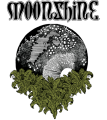Help:Quick Reference
MediaWiki Help
If you can't find what you need here, please check out the Help Page at mediawiki.com.
How to Create a New Page
There are several ways to start a new page.
- Wikilinks: If you (or anyone else) create a link to an article that doesn't exist yet, the link will be colored red, like this. Clicking a red link will take you to the edit page for the new article. Simply type your text, click save and the new page will be created. Once the page has been created, the link will change from red to blue (purple for pages you've visited) indicating that the article now exists. Usually this is the best way to create a new page, because it means that right from the start, the page will be linked from at least one other place on the wiki (and typically you will want to mesh it into other related pages later).
- From the search box: If you search for a page that doesn't exist (using the search box and "Go" button on the left of the page) then you will be provided with a link to create the new page.
Links
Internal Links
Code: [[Main Page]]
Piped Links
Piped links allow you change the displayed text for an internal link. Create a normal internal link, then put a pipe, "|" after the page name, then enter the text you want to appear instead. For example, here we will link to the "Russ Howell" page, but it will be displayed as Russ.
Code: [[Russ Howell|Russ]]
Word-Ending Links
Word-ending links will automatically extend link names with certain endings. Adding an "s" to the end of Kickflip, like "[[Kickflip]]s" will create the link Kickflips. Likewise, "[[Pogo]]ing" will create Pogoing.
Code: [[Kickflip]]s [[Pogo]]ing [[Help]]ers
Linking to Categories
To link to a category you use the syntax [[:Category:<category>]] to link to a category. The semicolon (":") at the beginning is very important. Without it, the page itself will be added to the category specified, instead of linking to it. Category links can also use Piped links and this is the preferred way to use them for a smoother reading experience. Here are some examples:
- Default Link: Category:Skaters
- Piped Link: Skaters
Code: [[:Category:Skaters]] (Default) [[:Category:Skaters|Skaters]] (Piped Link)
External Links
Code: [https://freestylekb.com The Freestyle Knowledge Base]
Section Formatting
Code: = Section Formatting =
Section Heading - Level 2
Code: == Section Heading - Level 2 ==
Section Heading - Level 3
Code: === Section Heading - Level 2 ===
Section Heading - Level 4
Code: ==== Section Heading - Level 4 ====
Text Formatting
Italic text
Code: ''Italic text''
Bold text
Code: '''Bold text'''
Bold and italic
Code: '''''Bold and italic'''''
Escape ''wiki'' markup (This will display the text as seen, so it doesn't try to italicize the word in this example)
Code: <nowiki>Escape ''wiki'' markup</nowiki>
Bullet List
- Start each line
- with an asterisk (*).
- More asterisks give deeper
- and deeper levels.
- More asterisks give deeper
- Line breaks
don't break levels.- But jumping levels creates empty space.
Any other start ends the list.
- bullet list
- - definition
- sublist that doesn't create empty
- spaces after definition
Code: * Start each line * with an asterisk (*). ** More asterisks give deeper *** and deeper levels. * Line breaks
don't break levels. *** But jumping levels creates empty space. Any other start ends the list.
Numbered List
- Start each line
- with a number sign (#).
- More number signs give deeper
- and deeper
- levels.
- More number signs give deeper
- Line breaks
don't break levels.- But jumping levels creates empty space.
- Blank lines
- end the list and start another.
Any other start also ends the list.
Code: # Start each line # with a number sign (#). ## More number signs give deeper ### and deeper ### levels. # Line breaks
don't break levels. ### But jumping levels creates empty space. # Blank lines # end the list and start another. Any other start also ends the list.
Horizontal Rule
Text Before
Text After
Code: Text Before ---- Text After
Images
Galleries
The gallery tags makes it very easy to create a gallery of multiple thumbnail images. This is useful for arranging multiple images with a uniform size onto a page. You can add as many images as you like between the opening and closing gallery tag, one image per line. Here is an example:
-
MODE Skateboards Logo
-
Decomposed Logo
-
Moonshine Skateboards Logo
-
Seismic Skate Logo
Code: <gallery> File:file_name.ext|caption|alt=alternate text File:MODE Skateboards Logo 1.jpg|MODE Skateboards Logo File:Decomposedlogo.jpg|Decomposed Logo File:Moonshine skateboards logo.png|Moonshine Skateboards Logo File:Seismic Skate Inc Logo.jpg|Seismic Skate Logo </gallery>
Note: The captions and alternate text are optional fields.
